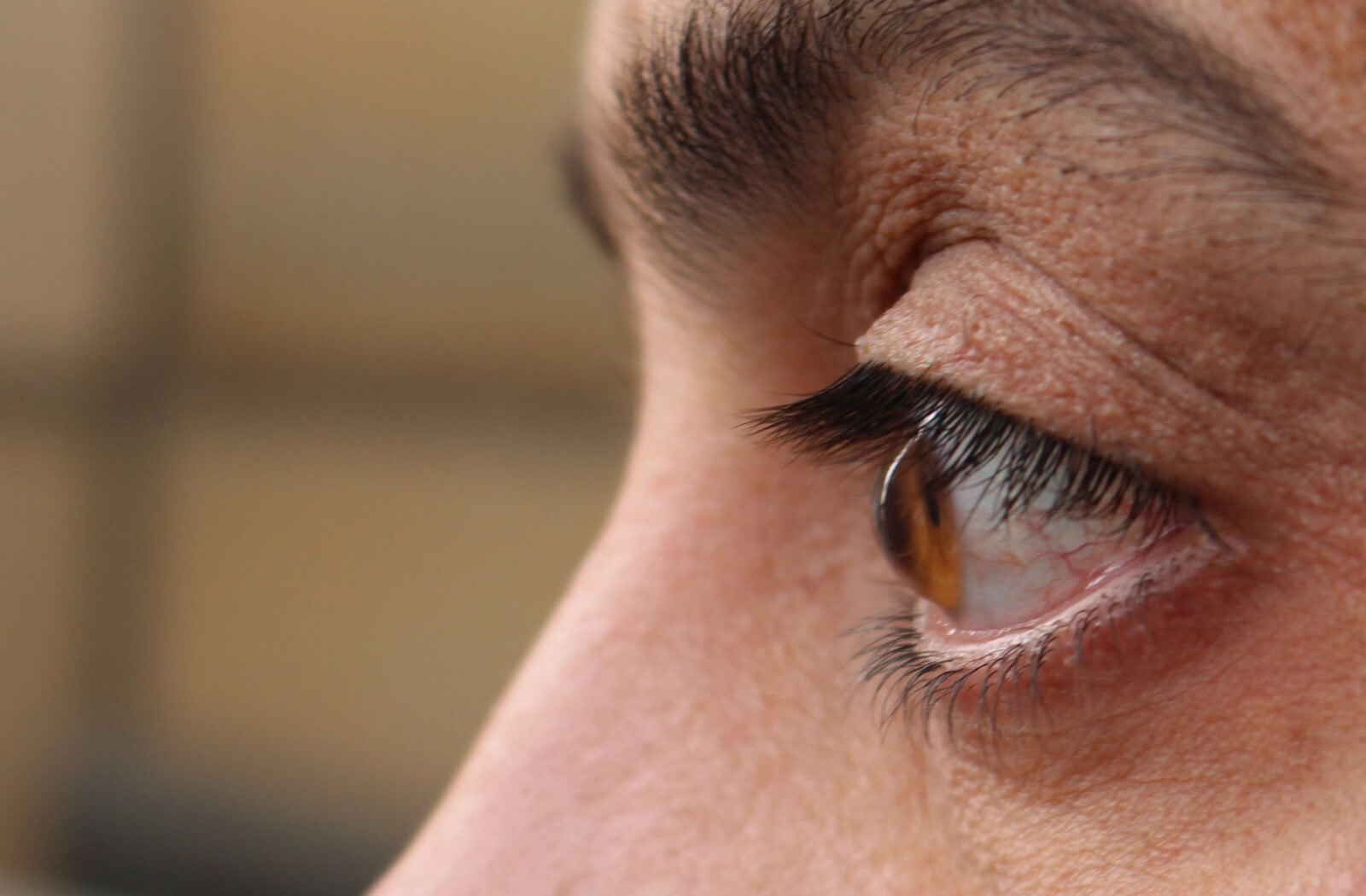When we think of allergies, we often associate them with sneezing, congestion, and itchy eyes. However, allergies can also have a significant impact on our vision.
Sometimes, eye allergies can go beyond itchy eyes, potentially leading to redness, swelling, and even long-term ocular damage if left untreated.
Various allergens like pollen, mold, dust mites, animal dander, and certain medications can trigger allergies. Eye allergies are often misunderstood as an infection or something more serious, such as an eye disease.
This is why it’s important to get your eyes examined if you’re experiencing various symptoms that differ from your normal, comfortable day-to-day. Your eye doctor can then prescribe an accurate and effective treatment plan to have you back on your way to health.
Allergy Symptoms & How They Affect Vision
When allergies affect your eyes, they can cause many symptoms. You might experience itching, tearing, blurred vision, a burning sensation, swollen eyelids, and sensitivity to light.
Some individuals may only have mild redness, while others could experience inflammation severe enough to impair vision. And while the severity and presentation can vary from person to person, one thing is common–it’s unpleasant!
While you might experience short-term blurriness, eye allergies generally don’t cause long-term damage. That being said, if you’re finding that your symptoms persist or over-the-counter treatments aren’t helping, getting checked out by a professional is a good idea.
Allergic Conjunctivitis
One of the most common ways allergies affect vision is through allergic conjunctivitis, also known as eye allergies. This condition occurs when the eyes react to irritants such as cigarette smoke, cosmetics, perfume, contact lenses, and contact lens solution, as well as the previously mentioned environmental allergens such as pollen, dust mites, pet dander, or mold.
Symptoms may include:
- Redness
- Itching
- Burning sensation
- Excessive tearing
- Swollen eyelids
Dry Eyes
Allergies can exacerbate dry eye syndrome, a condition characterized by insufficient moisture and lubrication on the eye’s surface.
When exposed to allergens, the eyes may produce more tears as a defense mechanism. However, these tears may lack the necessary components to properly lubricate the eyes, leading to discomfort and blurred vision.
Keratoconus

In some cases, severe allergies can contribute to the development or progression of keratoconus, a progressive eye disorder that causes thinning and bulging of the cornea.
Chronic eye rubbing due to allergy-related itching can weaken the corneal tissue, potentially worsening the condition and impacting vision.
Corneal Abrasions
A corneal abrasion is a scratch or injury on the cornea, the eye’s clear front surface. It can cause eye redness, pain, and sensitivity to light.
Constant rubbing of itchy eyes caused by allergies can increase the risk of corneal abrasions. If you think you have a scratched cornea, call your optometrist to prevent further damage.
Impact on Contact Lens Wearers
Allergies can make wearing contact lenses uncomfortable for individuals who rely on them for vision correction. Allergens can accumulate on the lenses, leading to irritation, discomfort, and increased risk of eye infections.
In severe cases, individuals may need to discontinue contact lens wear temporarily until allergy symptoms are under control.
Treatment & Management
Managing allergies and their impact on vision involves a combination of preventive measures and treatment options. This may include:
- Avoiding known allergens whenever possible, such as keeping windows closed during high pollen seasons and using allergen-proof pillowcases and mattress covers.
- Using over-the-counter or prescription antihistamine eye drops to relieve itching and redness.
- Applying cold compresses to reduce inflammation and soothe irritated eyes.
- Using artificial tears or lubricating eye drops to alleviate dryness and discomfort.
- Consulting with an eye care professional for personalized treatment options, including prescription medications or allergy shots for severe cases.
Is it Pink Eye or Allergies?
Distinguishing between allergic conjunctivitis and pink eye, which a virus or bacteria can cause, can be challenging.
An eye allergy typically results in clear secretions and itching, while a bacterial infection often leads to yellow or greenish discharge. It’s crucial to remember that most cases of conjunctivitis are viral rather than bacterial, and they usually improve after applying warm compresses.
If only one eye is impacted, avoid touching or applying anything, including corticosteroid drops, to the unaffected eye. The differences between an allergy-related conjunctivitis and one caused by bacteria can be subtle, and using corticosteroids can pose risks with certain bacterial infections.
Safeguarding Your Vision Against Allergies
Allergies can manifest in various ways, including affecting our vision. From allergic conjunctivitis to exacerbating existing eye conditions, allergies can significantly impact eye health and comfort.
Individuals can alleviate symptoms and protect their vision by taking proactive steps to manage allergies and seeking appropriate treatment.
If you experience persistent eye symptoms related to allergies, it’s essential to consult with your eye care professional at The Vision Place for evaluation and management. Book your appointment today.


